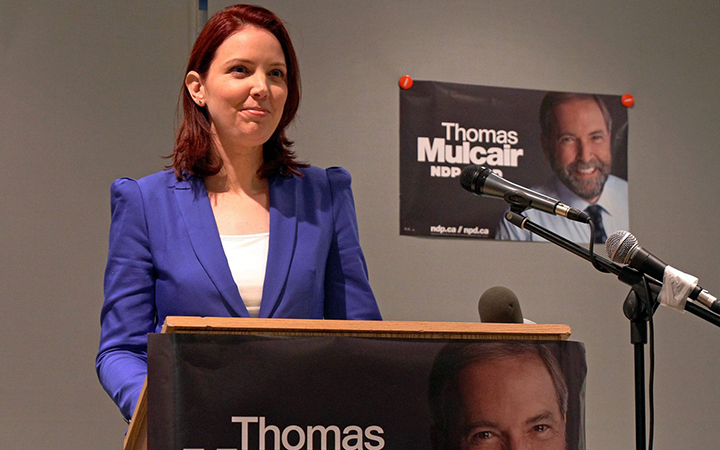OTTAWA – Almost 1,800 candidates representing 23 different parties will be vying for Canadians’s votes when they go to the polls on Oct. 19.

And about one third of those candidates are women – a small 1.5 percentage point increase over the 2011 election.
Equal Voice, a non-partisan advocacy group dedicated to increasing women’s participation in politics, said it’s “thrilled” with the progress but noted that at this rate it will take “another 11 federal elections to reach anything approximating gender balance on the ballot. Forty-five years.”
The Conservatives and NDP are running full slates, with candidates in each of the country’s 338 ridings.
READ MORE: 10 ridings the Conservatives need to win to finish with the most seats
The Liberals were reduced to 337 candidates on Wednesday when Cheryl Thomas quit after anti-Muslim and anti-Israel comments she’d made on Facebook surfaced. Thomas’s name will remain on the ballot, but she said she won’t take her seat if she wins.
The Greens are running 336 candidates, with holes in Labrador and the British Columbia riding of Kelowna.
In Quebec, the Bloc Quebecois is running a full slate, with 78 candidates.
According to Equal Voice, 33 per cent of the candidates of the five main parties are women.
The NDP leads the pack with 43 per cent women, followed by the Greens with 39 per cent, the Liberals with 31 per cent, the Bloc with 28 per cent and the Conservatives with just 20 per cent.
Monday was the deadline for candidates to register with Elections Canada or withdraw their names from the ballot. While the agency is still in the process of finalizing the list, its website as of late Wednesday afternoon showed 1,791 registered candidates.
READ MORE: 10 ridings the NDP need to win to get the most seats
Eighty candidates are running as independents or with no party affiliation. That includes Scott Andrews, one of two former Liberal MPs who were turfed from their party over allegations of sexual harassment by female New Democrat MPs. Andrews is running as an unaffiliated candidate in his old Newfoundland riding.
Among the parties that will be represented on the ballot are some that few Canadians will be aware even existed: Alliance of the North, the Bridge party, Senior’s party, United party and the Accountability, Competency and Transparency party, all of which boast only one candidate each.
The Libertarians are running 72 candidates, the Marxists-Leninists 70, Christian Heritage 30, Rhinoceros 27, Communists 26, Forces et Democratie 17, and the Pirate party five.



Comments